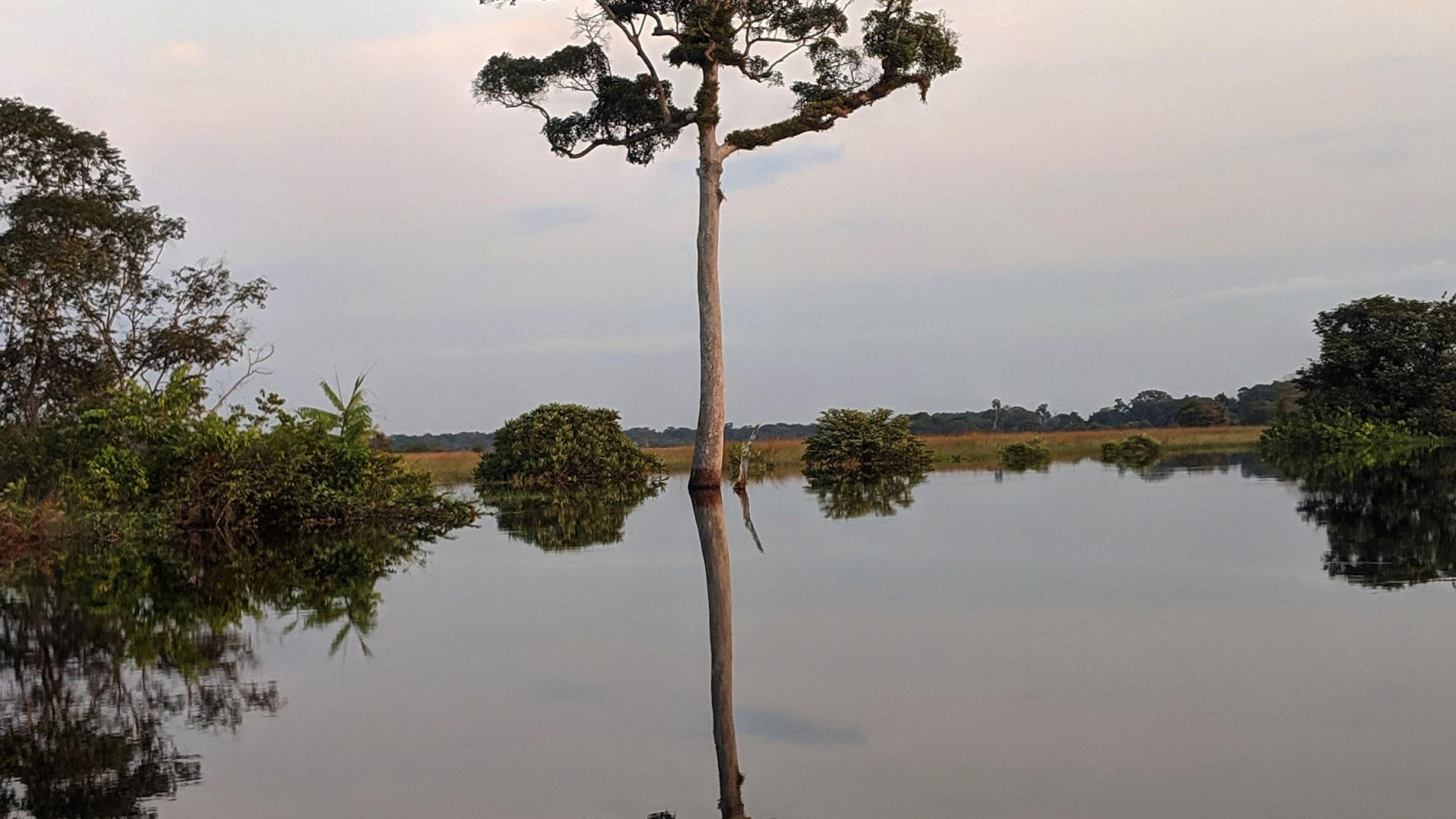
New interdisciplinary research to help manage climate risks to tropical peatlands
The United Nations Environment Programme (UNEP) and an international team of researchers are seeking to understand how governments, researchers and local communities can work together to tackle climate risks to the world’s most important terrestrial carbon store.
Emissions from damaged peatlands account for 5% of the global carbon budget, with the majority coming from tropical peatlands. There are significant challenges associated with restoring damaged peatlands. While most research has helped to understand environmental processes, a big gap remains in identifying how we can govern peatlands in such a way that the resilience of poor and marginalised groups can be enhanced through restoration. Funded by the British Academy, this new project brings together social scientists specialising in environmental governance who will work alongside natural scientists to develop new transformational governance actions to better manage climate risks in tropical peatlands. The research focusses on Indonesia, Peru and the Congo Basin, which together represent the majority of tropical peatlands area and emissions.
The project is co-led by UNEP’s Global Peatlands Initiative with researchers from Scotland’s Rural College and nine Universities and research institutes from the UK (Newcastle University, University of Leicester, University of York, University for the Third Horizon, 3Keel), Peru (Instituto de Investigaciones de la Amazonia Peruana), Indonesia (International Tropical Peatlands Centre), Democratic Republic of Congo (University of Kisangani) and Republic of Congo (Marien Ngouabi University).
Dianna Kopansky, Coordinator of UNEP’s Global Peatlands Initiative and joint Principal Investigator for the new project explained the importance of the work:
“Tropical peatlands provide globally important ecological and climate benefits, plus local and national socio- economic benefits for some of the most remote and impoverished communities in countries like Indonesia, Peru, DRC and Republic of Congo. However tropical peatlands in these countries are threatened by drainage for agriculture, commercial forestry and infrastructure development, with the Global Peatland Initiative’s first major report pointing to policy and governance challenges as key to sustainable development and poverty reduction challenges.
“The Global Peatlands Initiative is a partnership of 42 peatland-related organisations around the world, mainly representing policy and practice. By establishing stronger links between this initiative and the global research community, we aim to contribute to the implementation of the UNEA4 Resolution on the Conservation and Sustainable Management of Peatlands in each of the initiative’s four focal countries. The project will also contribute towards key targets under Sustainable Development Goals (to achieve climate action, no poverty and life on land), the UN Convention to Combat Desertification (SDG15.3 on land degradation neutrality), the Ramsar Convention’s peatland resolution and the generation of tropical peatland options to deliver National Determined Contributions under UNFCCC that also deliver benefits for impoverished populations.”
Professor Mark Reed, joint Principal Investigator and Director of SRUC’s Thriving Natural Capital Challenge Centre, explained how the project aims to transform climate risk in the four focal countries:
“Our research aims to do two things. First, we want to build social science and interdisciplinary capacity in the international tropical peatland community, so we can work together to co-produce an interdisciplinary climate resilience research agenda. Next, we want to research innovative governance approaches that integrate social science on ecosystem markets with natural science and engineering technologies for peatland restoration, to transform governance and reduce vulnerability to climate risks.
“Governance is challenging as tropical peatlands are often located in conflict prone areas, fragile states and borderlands, with complex land tenure and rapidly changing socio-cultural and political contexts. The project therefore brings together a unique combination of experts from around the world to integrate insights from economics and social science on Payments for Ecosystem Services with evidence from natural sciences and engineering on the restoration of degraded tropical peatlands, exploring the potential for private finance to enhance climate resilience and mitigation by paying for conservation, restoration and sustainable management.”
For more information about the research, please contact:
- Mark Reed: reed@sruc.ac.uk
- Dianna Kopansky: kopansky@un.org
More about the Global Peatlands Initiative: https://www.globalpeatlands.org/
More about the SRUC Thriving Natural Capital Challenge Centre: https://ww1.sruc.ac.uk/research/challenge-centres/thriving-natural-capital/
More about the Newcastle University : https://www.ncl.ac.uk/
More about the University of Leicester: https://le.ac.uk/
More about the University of York: https://www.york.ac.uk/
More about the University for the Third Horizon: https://www.h3uni.org/
More about 3Keel : https://www.3keel.com/
More about the Instituto de Investigaciones de la Amazonia Peruana (IIAP): http://iiap.org.pe/web/presentacion_iiap.aspx
More about the International Tropical Peatlands Centre: https://www.tropicalpeatlands.org/
More about the University of Kisangani: http://www.unikis.ac.cd/
More about the Marien Ngouabi University: https://www.umng.cg/
More about UNEP: https://www.unep.org/explore-topics/ecosystems-and-biodiversity/what-we-do/protecting-peatlands-people-and-planet